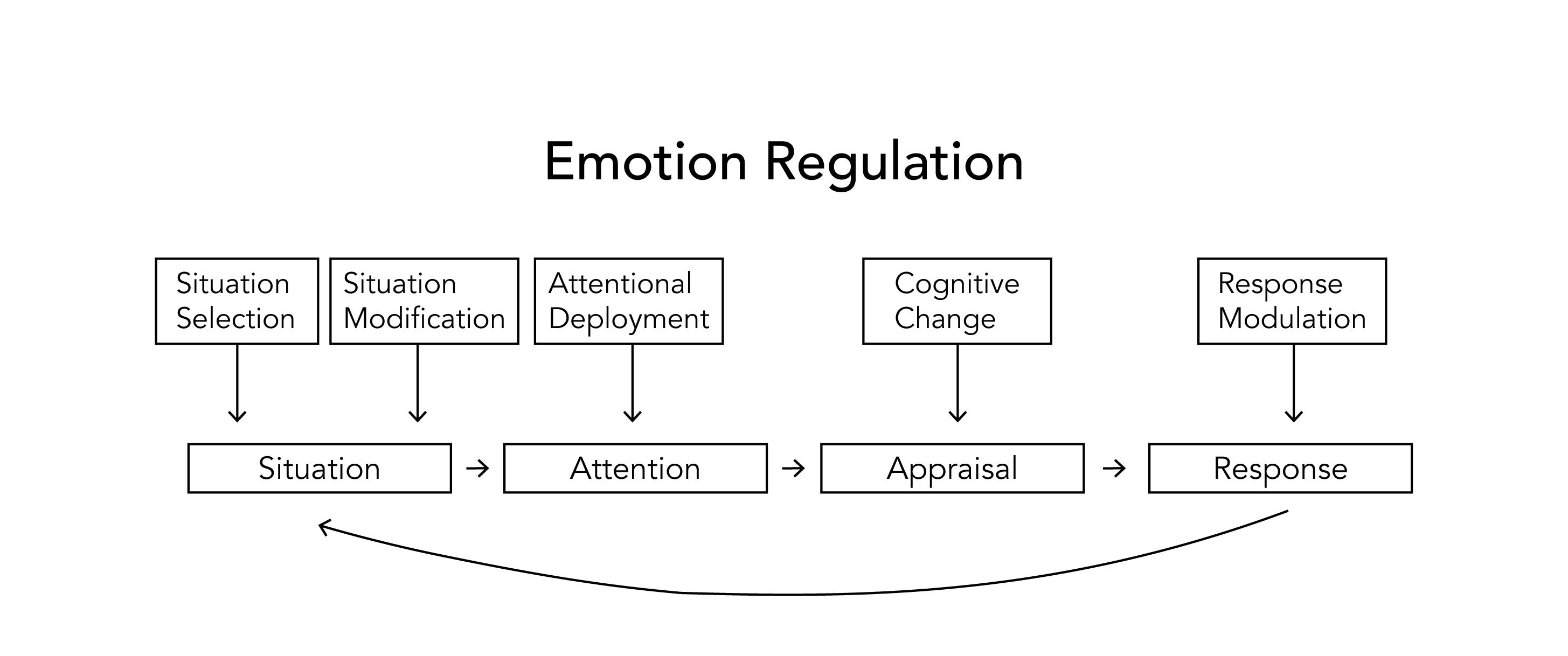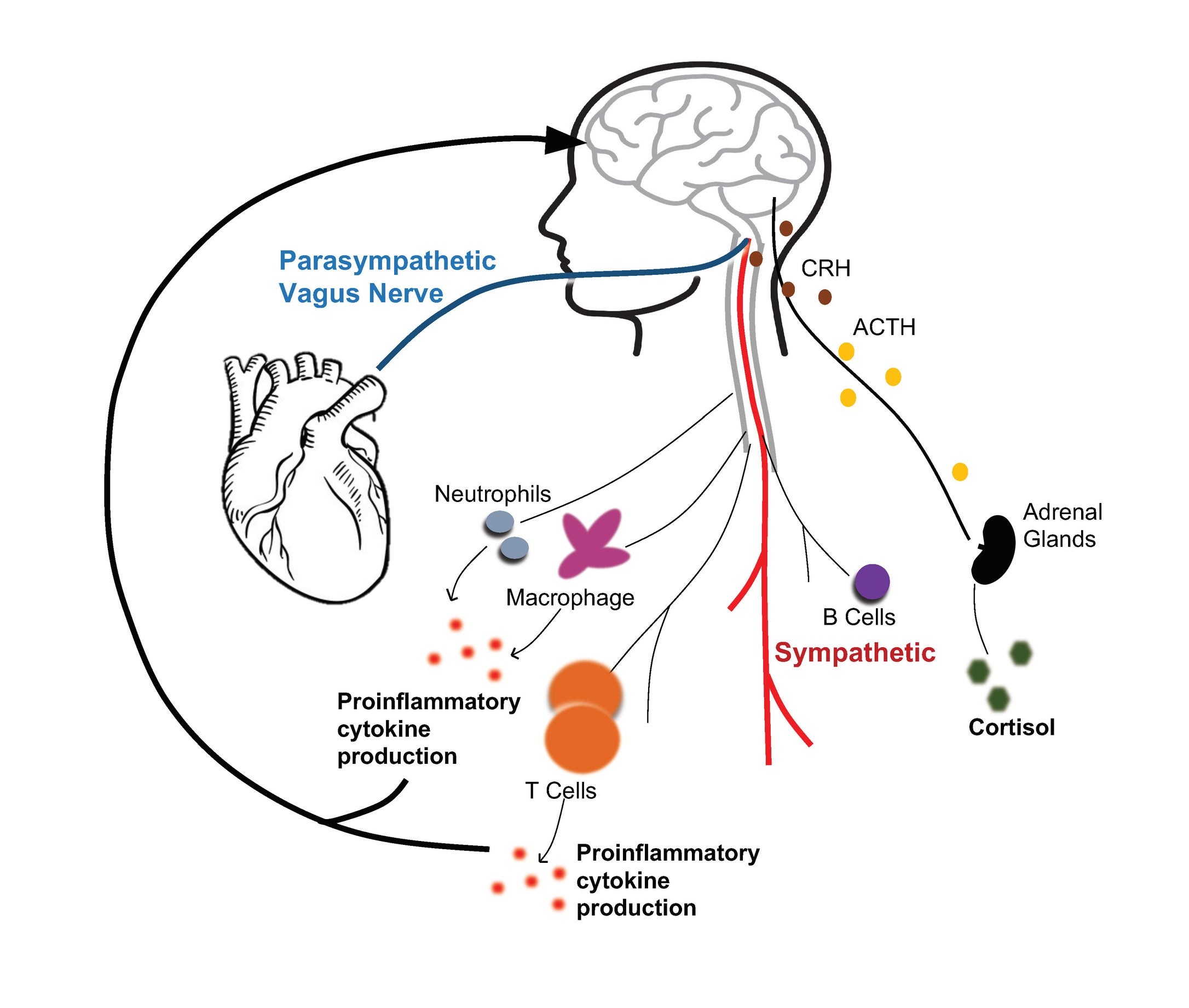We use innovative methodology to conduct research in health psychology and related areas. These include the use of venous blood draws, EKG, fMRI, neuropsychological assessments, structured interviews, stress paradigms, ecological momentary assessment (EMA) technology, and behavioral testing. Using these methods, we broadly focus on three research domains (described below). We also conduct projects (observational, experimental, or intervention-based) that overlap into neighboring topics in health neuroscience, cognitive psychology, public health, industrial/organizational psychology, and human factors psychology.
Affect, Emotions, and Health

We seek to understand how we experience and regulate emotions, how we can become better emotion regulators, and how changes in emotion regulation impact mental and physical health. In particular, we examine how affect, emotions, and emotion regulation strategies influence people’s well-being and immune functioning. Overall, we are interested in understanding the basic psychological, immunological, and neurobiological mechanisms underlying successful and unsuccessful emotion regulation in both healthy and clinical populations, and we are also interested in utilizing the results of basic investigations into these processes in order to design and test novel, scalable interventions focused on improving real-world emotion regulation outcomes in a variety of contexts.
For example, we study how the use of different emotion regulation strategies are associated with more favorable health outcomes (e.g., among college students, healthy adults when infected with rhinovirus, family caregivers of persons with dementia, and older adults following the death of their spouse). You can see an example here from Dr. Richard Lopez, a former post-doc in the T-SCAN lab and currently an Assistant Professor at Worcester Polytechnic Institute, who examined emotion regulation strategies associated with better immune functioning among bereaved older adults.
Close Relationships and Health

We study how close relationships influence markers of mental and physical health. For example, we have studied how the loss of a close relationship partner (e.g., spouse) affects one’s risk of cardiovascular disease. You can see an example here from Dr. Angie LeRoy, a former postdoctoral fellow in the BMED Lab, who recently published a theoretical model of how one’s attachment hierarchy is reorganized following the death of a spouse.
Early-Life Stress and Health
We are focused on identifying the mechanisms underlying how early-life stress puts a person at greater risk of mental and physical health problems across the lifespan. For example, we have studied how childhood maltreatment influences people’s response to the death of a spouse. You can see an example here from Dr. Chris Fagundes, the Principal Investigator of Project HEART and Project ACT in the BMED Lab, who describes how psychological, autonomic, neuroendocrine, and epigenetic responses to one’s early environment affects immune function in adulthood.
Behavior Change Interventions
We develop and test strategies designed to help people make healthy behavior changes (e.g., limiting sugar intake; increasing physical activity). We also examine unintended consequences of these interventions, with a particular focus on finding ways to increase people’s motivation and reduce their experiences of stress and stigma when pursuing behavior change. For example, we have studied how weight loss interventions can make higher-weight people feel both motivated to eat a healthy diet and stigmatized for their body size. You can see some examples here and here from Dr. Erin Standen, the Principal Investigator of the SWELL Lab.
Other health relevant topics
Translational applications of basic research
We perform basic and translational research to understand how our memory system works and how this system goes awry in memory and mood disorders such as Alzheimer’s disease and depression. We utilize state-of-the-art high-resolution imaging techniques, PET imaging of amyloid and tau pathologies, and novel experimental paradigms to understand brain-behavior relationships. We have published a recent review on the clinical application of using memory paradigms that are sensitive to clinical disorders in which the hippocampus is a major site of disruption.
Aging and the workplace
We are interested in advancing successful aging at work in fostering environments supportive of extending the working lifespan, such as improving person-job fit, reducing age-related discrimination, and advancing continuous development and growth.
Discrimination in Health-Related Contexts
We examine interactions between caregivers and patients and are interested in identifying how demographic characteristics (e.g., race, gender, body size) result in disparities in treatment that ultimately also lead to poorer psychological- and health-related outcomes. In some of the research that Hebl has done, she has shown that physicians are more likely to discriminate against overweight patients and that female patients are particularly able to identify these biases. We (Hebl & King) are currently examining how subtle discrimination against patients influence their social experiences in medical-related interactions, adherence to medical-related advice, psychological and physiological measures, and willingness to return for more medical treatment. Standen's work also touches on this area, examining how patients' experiences of discrimination in healthcare settings may impede their future behavior change efforts. We are also very interested in examining interactions in telemedicine.
Our studies are funded by numerous agencies including: National Heart, Lung, and Blood Institute, National Institute on Aging, and National Endowment for the Arts.
